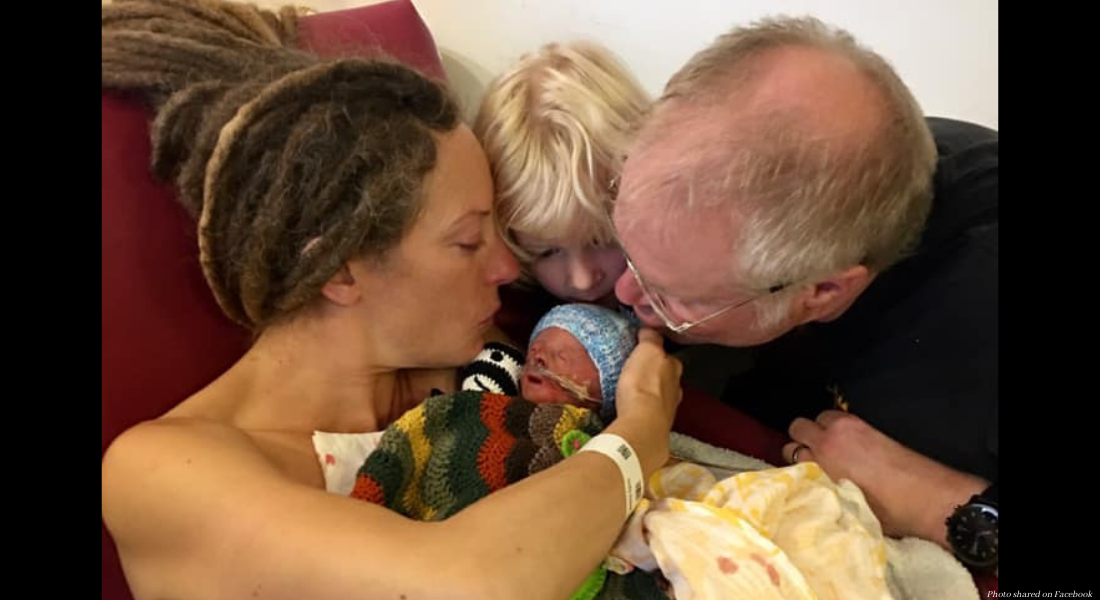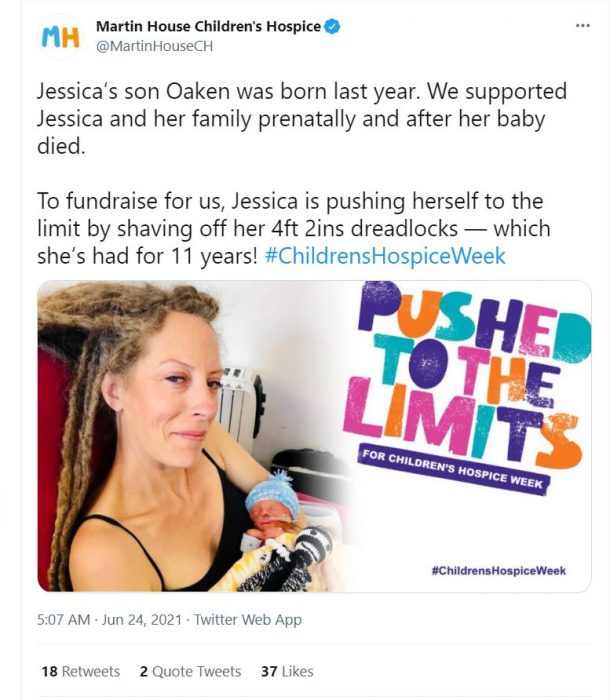During the height of the COVID-19 pandemic, a mother in the United Kingdom gave birth to a baby boy with Trisomy 18, also known as Edwards syndrome. Though he lived for just two days outside the womb, his mother said his life had immense value, and he is a much-loved member of their family.
Jessica Herbert, an arboriculturist in York, had suffered seven miscarriages when she and her husband Simon found out she was pregnant again. Both excited and scared, she looked forward to her first ultrasound only to learn that her son had Trisomy 18, a condition in which a child has an extra copy of the 18th chromosome. Children with Trisomy 18 are often labeled as “incompatible with life.”
Herbert was instructed almost immediately to have an abortion, but she refused. “As he was still alive, I couldn’t do it,” she told the BBC. Instead, the family — which includes five-year-old Willow — prepared themselves to embrace whatever time they did have with their little boy, whom they named Oaken.
“We’ve had some real downs, as expected,” Herbert explained. “I was terrified throughout the pregnancy that we would lose him, but I make a conscious effort to focus on the positives.”
The family received support from Martin House, a local children’s hospice, and big sister Willow ended up being a “pillar of strength” as well. “She taught so many people about death and not to be frightened of it. It was a privilege to have that perception from a young person,” Herbert said. Willow had been thrilled to be a big sister, so when Oaken was born, Herbert made sure she had the chance to hold him, dress him, and love him. A charity also provided Willow with a sibling box to have in remembrance of her little brother.
“These are things a girl wants to do with a baby brother, so it was a positive thing for her as well,” said Herbert. She added that Oaken remains a vital part of their family. “We also talk about him quite a lot in a positive way. We talk about our happy memories. There are photos of him all over the place. He’s part of our family, just not with us.”
When the end of Herbert’s pregnancy neared, she clung to hope she found from online support groups, with stories of children born alive. “This gave me hope and the confidence to give him a chance to be born,” she said. “I’m so glad I went ahead. At least we had Oaken and a positive experience.”
Oaken was born alive and lived for two days after his birth. Martin House provided a special room for the family to stay in together with a Moses basket and cooling pad so that after Oaken passed, they wouldn’t have to say goodbye right away. Martin House provided counseling for the couple as well, including husband Simon, whom Herbert said shouldn’t be overlooked.
“I know I have the physical stuff, but he’s lost eight babies as well,” she said. “It’s been hard for him, but he’s been a huge support to me, my biggest fan.”
While many children with Trisomy 18 do not often live long after birth, more recent data suggests this is because doctors view them as if they are guaranteed to die. Because of this, they frequently do not receive proper care, which would offer them a greater chance of survival. With more aggressive and precise treatment, children with Trisomy 18 have a much greater chance of living longer lives. Megan Hayes, the oldest woman with Trisomy 18 in the United States, turned 40 in 2020.
READ: No longer a death sentence: This hospital treats kids with Trisomy 18, and the results are amazing
Herbert is planning to raise money for Martin House and awareness for Trisomy 18 by shaving her head. She has had dreadlocks for 11 years and they have grown to be over four feet long, making it quite a sacrifice. “They’ve been part of me for so long – I’m excited and nervous – but I’m hoping it will be quite liberating for me,” she said. In the meantime, she wants to make sure people know who Oaken was, and that his life had meaning.
“His medical difficulties were too severe and there was little the wonderful medical teams involved could do to help him so we went to Martin House. He was calm and contented and responded to our cuddles and touch,” she said. “He was such a brave little man who showed us we’d done the right thing to give him a chance at life. He has taught so many people so much about life, love and death and I’ll be forever grateful to him for this.”
Despite evidence that choosing life for a baby who receives a prenatal diagnosis is beneficial for everyone in the family, doctors continue to pressure parents into abortion. Yet, research has shown that women who choose abortion after a prenatal diagnosis suffer a greater risk of depression and PTSD than women who choose life. “Women who terminated [following prenatal diagnosis of a lethal fetal anomaly] reported significantly more despair, avoidance, and depression than women who continued the pregnancy,” said one 2015 study. “There appears to be a psychological benefit to women to continue the pregnancy following a lethal fetal diagnosis.”
“Like” Live Action News on Facebook for more pro-life news and commentary!








